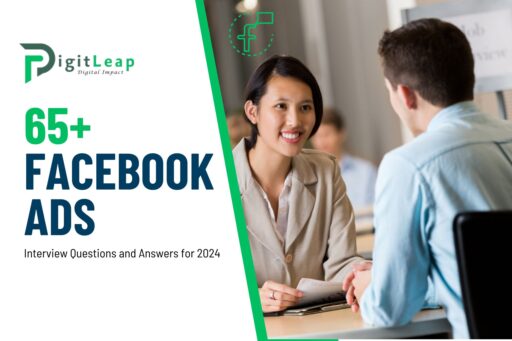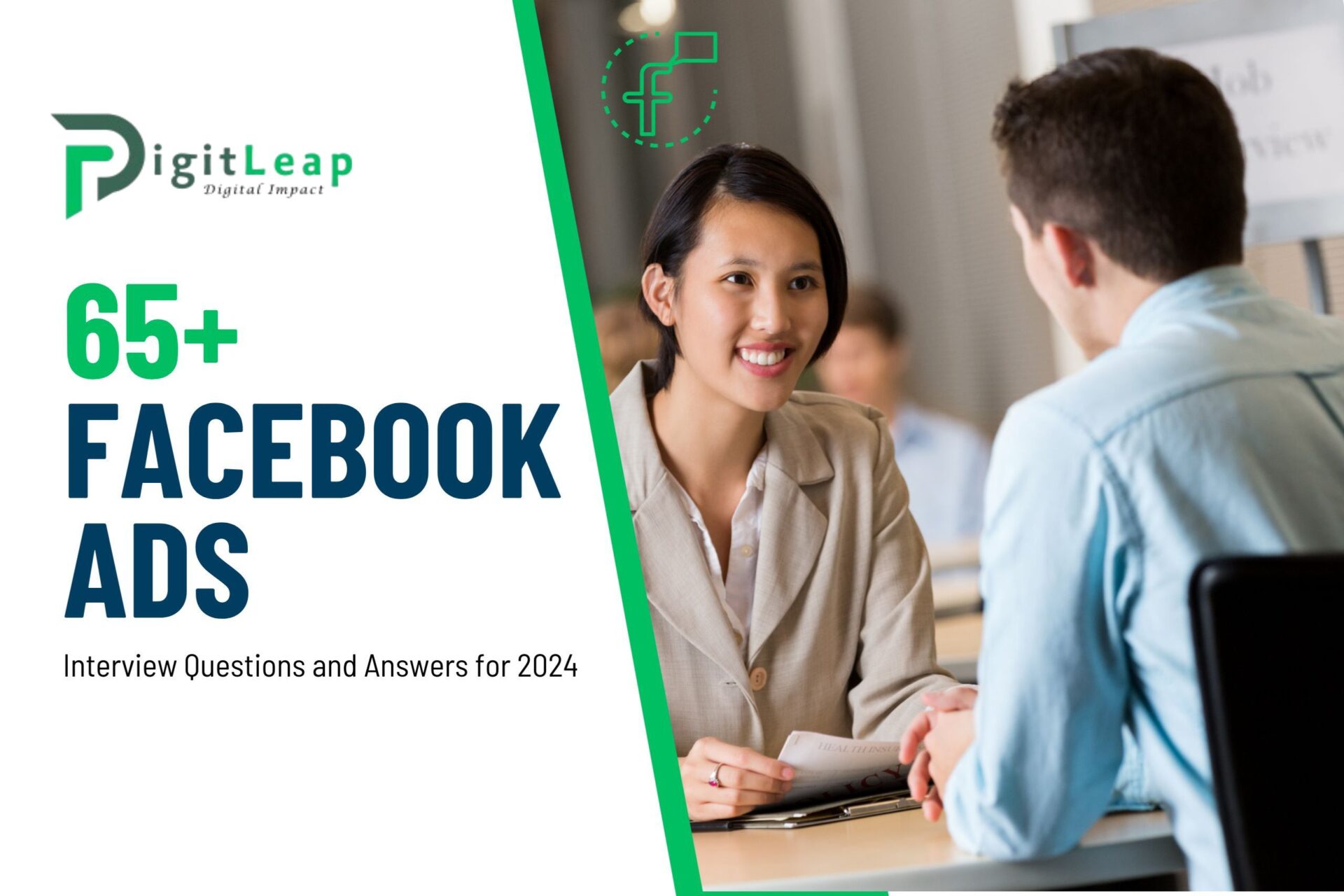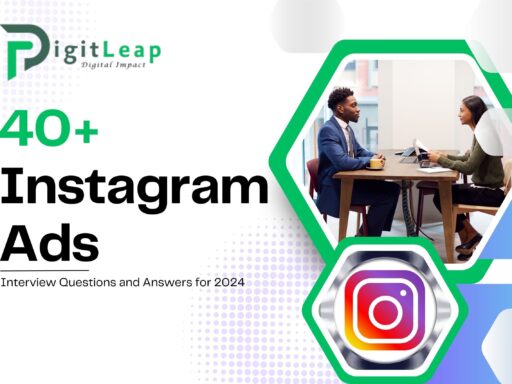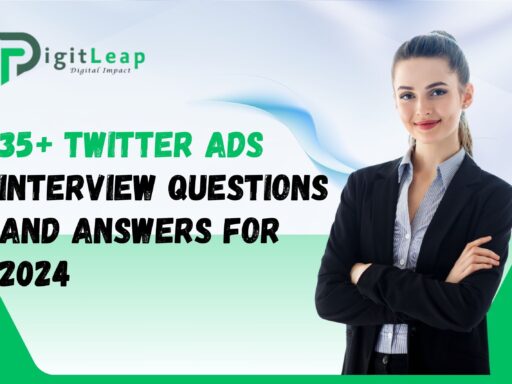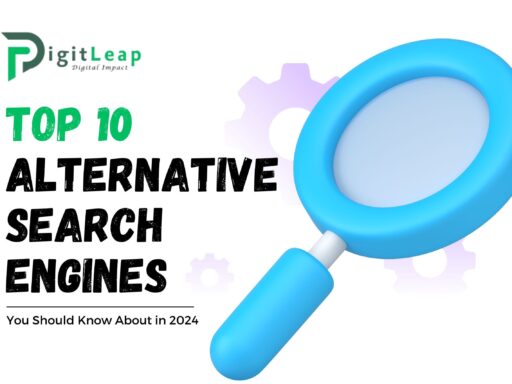1. What is Facebook Ads Manager?
Answer: Facebook Ads Manager is a tool that allows advertisers to create, manage, and monitor their ad campaigns on Facebook, Instagram, and Audience Network. It provides detailed analytics and insights to optimize ad performance.
2. How does the Facebook Ads auction work?
Answer: The Facebook Ads auction determines which ads should be shown to a specific audience based on bid amount, estimated action rates, and ad quality. The ad with the highest total value wins the auction.
3. What are the different types of Facebook Ads?
Answer: Facebook offers various ad formats, including image ads, video ads, carousel ads, slideshow ads, collection ads, lead generation ads, and dynamic ads.
4. Explain the difference between Reach and Impressions.
Answer: Reach is the number of unique users who see your ad, while Impressions are the total number of times your ad is displayed, regardless of whether the same user sees it multiple times.
5. What is the Facebook Pixel?
Answer: The Facebook Pixel is a piece of code placed on your website to track visitor behavior, optimize ads, build audiences for remarketing, and measure the effectiveness of your ads.
6. How can you track conversions from Facebook Ads?
Answer: Conversions can be tracked using the Facebook Pixel, which records actions such as purchases, sign-ups, or other custom events defined by the advertiser.
7. What is a Lookalike Audience?
Answer: A Lookalike Audience is a tool that allows advertisers to target people who are similar to their existing customers or audience, increasing the likelihood of higher engagement and conversions.
8. How do you create a custom audience?
Answer: Custom Audiences can be created by uploading customer lists, using website traffic data (via the Facebook Pixel), or app activity to target users who have already interacted with your business.
9. What is A/B testing in Facebook Ads?
Answer: A/B testing, also known as split testing, involves running two or more ad variations to determine which performs better in terms of engagement, conversions, or other key metrics.
10. What is the significance of the relevance score?
Answer: The relevance score (now replaced by Quality Ranking, Engagement Rate Ranking, and Conversion Rate Ranking) indicates how well your ad is resonating with your target audience. Higher scores often lead to lower costs and better performance.
11. How can you optimize a Facebook Ad campaign?
Answer: Optimization strategies include refining targeting, adjusting bid strategies, A/B testing ad creatives, using automated rules, and analyzing performance data to make informed adjustments.
12. What are Facebook’s bidding strategies?
Answer: Facebook offers several bidding strategies, including Cost Per Click (CPC), Cost Per Impression (CPM), Cost Per Action (CPA), and automatic bidding, which adjusts bids to achieve the best results within your budget.
13. What are the key metrics to track in a Facebook Ad campaign?
Answer: Key metrics include Click-Through Rate (CTR), Cost Per Click (CPC), Conversion Rate, Return on Ad Spend (ROAS), and Cost Per Acquisition (CPA).
14. How does Facebook’s Ad delivery system work?
Answer: Facebook’s ad delivery system uses machine learning to determine the best time and placement for your ads, considering factors such as audience behavior, ad quality, and budget.
15. What is frequency capping in Facebook Ads?
Answer: Frequency capping limits the number of times a specific user sees your ad, preventing ad fatigue and overexposure, which can negatively impact campaign performance.
16. Explain the difference between CPC and CPM bidding.
Answer: CPC (Cost Per Click) charges advertisers based on the number of clicks their ad receives, while CPM (Cost Per Thousand Impressions) charges based on the number of times the ad is displayed, regardless of clicks.
17. What is Dynamic Creative in Facebook Ads?
Answer: Dynamic Creative automatically generates variations of your ad by mixing and matching different headlines, images, and calls to action, allowing Facebook to determine the best-performing combinations.
18. How do you handle a campaign that’s underperforming?
Answer: To address underperformance, analyze key metrics, adjust targeting, test new creatives, modify bids, and consider reallocating the budget to higher-performing ads or segments.
19. What are Facebook Ad placements?
Answer: Ad placements refer to where your ads are shown on Facebook, Instagram, Audience Network, and Messenger. You can choose automatic placements or manually select specific placements.
20. How can you increase the Click-Through Rate (CTR) of a Facebook Ad?
Answer: To increase CTR, use compelling visuals, strong calls to action, precise targeting, and relevant ad copy. A/B testing different creatives can also help identify what resonates most with your audience.
21. What is the Facebook Ads Learning Phase?
Answer: The Learning Phase is a period when Facebook’s algorithm gathers data to optimize ad delivery. During this phase, ad performance can be unstable, and adjustments should be minimized.
22. What are some common reasons for Facebook Ads being disapproved?
Answer: Ads may be disapproved due to violations of Facebook’s advertising policies, such as inappropriate content, misleading claims, copyright issues, or restricted products and services.
23. How do you manage a large-scale Facebook Ads account?
Answer: Managing large accounts involves using tools like Facebook’s Business Manager, creating organized campaign structures, implementing automated rules, and regularly monitoring performance across all campaigns.
24. What is the difference between boosted posts and Facebook Ads?
Answer: Boosted posts are a simplified way to promote existing posts on your page, whereas Facebook Ads offer more advanced targeting, bidding, and creative options through Ads Manager.
25. How does Facebook’s campaign budget optimization (CBO) work?
Answer: CBO automatically distributes your budget across different ad sets based on their performance, ensuring that your budget is spent on the highest-performing ads.
26. What is a conversion funnel, and how does it apply to Facebook Ads?
Answer: A conversion funnel represents the stages a user goes through from awareness to conversion. Facebook Ads can be tailored to target users at different stages of the funnel, such as awareness, consideration, and conversion.
27. How do you set up a retargeting campaign on Facebook?
Answer: Retargeting campaigns are set up by creating custom audiences based on past interactions, such as website visits, app activity, or engagement with previous ads.
28. Explain the importance of ad creative in a Facebook campaign.
Answer: Ad creative is crucial as it’s the first thing users see. High-quality visuals, engaging copy, and a clear call to action are essential for capturing attention and driving conversions.
29. What are Instant Experience Ads?
Answer: Instant Experience Ads (formerly Canvas ads) are mobile-only, full-screen ads that load instantly and offer an immersive, interactive experience for users.
30. How do you measure the success of a Facebook Ads campaign?
Answer: Success can be measured by evaluating key performance indicators (KPIs) such as ROAS, conversion rate, CTR, engagement metrics, and overall return on investment (ROI).
31. What is the role of audience segmentation in Facebook Ads?
Answer: Audience segmentation allows advertisers to target specific groups within their overall audience, tailoring ads to different demographics, interests, or behaviors for more effective campaigns.
32. How do you use Facebook Ads for lead generation?
Answer: Lead generation ads on Facebook are designed to collect user information directly within the platform, using forms that auto-fill with user data for a seamless experience.
33. What is the Attribution Window in Facebook Ads?
Answer: The Attribution Window is the time period during which a conversion is credited to a Facebook ad. Advertisers can choose between 1-day, 7-day, and 28-day attribution windows.
34. How does Facebook Ads reporting work?
Answer: Facebook Ads Manager provides detailed reports on campaign performance, allowing advertisers to analyze data by metrics such as reach, impressions, clicks, conversions, and more.
35. What are automated rules in Facebook Ads?
Answer: Automated rules allow advertisers to set predefined actions (like pausing a campaign or adjusting budgets) based on specific conditions, helping to manage campaigns more efficiently.
36. What is the difference between cold, warm, and hot audiences?
Answer: Cold audiences are users who have never interacted with your brand, warm audiences have shown some interest, and hot audiences are those ready to convert.
37. How do you use Facebook Analytics to improve ad performance?
Answer: Facebook Analytics provides insights into user behavior, which can be used to refine targeting, optimize ad creative, and improve overall campaign strategies.
38. What are the best practices for writing Facebook Ad copy?
Answer: Best practices include being clear and concise, using a strong call to action, addressing the audience’s pain points, and making the value proposition evident.
39. How do you adjust a campaign that has high impressions but low CTR?
Answer: If a campaign has high impressions but low CTR, consider revising the ad creative, refining the audience targeting, or testing different calls to action to boost engagement.
40. What is Audience Network?
Answer: Audience Network is a collection of third-party apps and websites where Facebook ads can be shown, extending the reach of your campaigns beyond Facebook’s own platforms.
41. How can you use video in Facebook Ads effectively?
Answer: Effective video ads are typically short (15-30 seconds), engaging, and convey the message quickly. Using captions and clear visuals can also help in retaining viewer attention.
42. What is the role of UTM parameters in Facebook Ads?
Answer: UTM parameters are tags added to the URL of your ad to track campaign performance in Google Analytics or other analytics platforms, helping to analyze traffic sources and conversions.
43. How do you handle negative comments on Facebook Ads?
Answer: Negative comments should be addressed professionally and promptly. Depending on the situation, you may hide or delete inappropriate comments or respond to constructive criticism to maintain brand reputation.
44. What is the significance of ad scheduling in Facebook Ads?
Answer: Ad scheduling allows you to run ads during specific days or hours when your target audience is most likely to be active, optimizing ad spend and improving engagement.
45. How does Facebook handle data privacy and what impact does it have on advertisers?
Answer: Facebook adheres to strict data privacy regulations, such as GDPR, which limits the data advertisers can access and use for targeting. This has led to the need for more transparent and compliant advertising practices.
46. What is the role of creatives in audience targeting?
Answer: Creatives play a crucial role in audience targeting by appealing to specific segments through tailored visuals, messages, and calls to action that resonate with different demographics or interests.
47. How can you lower the cost per acquisition (CPA) on Facebook?
Answer: To lower CPA, optimize your ad targeting, refine your creative to improve engagement, test different bidding strategies, and continuously monitor and adjust your campaign based on performance data.
48. How do you set up and use Facebook’s Custom Conversions?
Answer: Custom Conversions allow you to define specific actions as conversions, such as a visit to a specific page or a completed purchase. These can be set up in Facebook Ads Manager using the Pixel data.
49. How does the Apple iOS 14 update affect Facebook Ads?
Answer: The iOS 14 update requires apps to ask for user consent before tracking, which has limited the amount of data Facebook can collect, affecting targeting, reporting, and optimization of ads.
50. How do you ensure your Facebook Ads comply with the platform’s policies?
Answer: Ensure compliance by thoroughly reviewing Facebook’s advertising policies, avoiding prohibited content, and adhering to guidelines regarding ad creative, targeting, and data use.
51. What are Facebook Ad Funnels?
Answer: Facebook Ad Funnels are a series of ad campaigns designed to guide users through different stages of the buyer’s journey, from awareness to conversion, by targeting them with relevant content at each stage.
52. How do you use Facebook Ads for eCommerce?
Answer: For eCommerce, Facebook Ads can drive traffic to your online store, promote specific products, retarget users who abandoned their carts, and increase sales through dynamic ads and offers.
53. What is the purpose of Facebook’s Business Manager?
Answer: Facebook’s Business Manager is a tool that allows businesses to securely manage their pages, ad accounts, and team members, providing centralized control and access to advanced features.
54. How do you deal with ad fatigue in Facebook campaigns?
Answer: To combat ad fatigue, regularly refresh your ad creatives, rotate different ad formats, and adjust targeting to reach new audience segments.
55. What is the role of split testing in Facebook Ads?
Answer: Split testing allows you to compare different versions of an ad to determine which performs better, helping you optimize your campaigns based on data-driven insights.
56. How do you optimize Facebook Ads for mobile users?
Answer: Optimizing for mobile involves using vertical or square ad formats, ensuring fast-loading landing pages, using clear and concise messaging, and focusing on mobile-specific placements like Stories.
57. What is the difference between brand awareness and engagement campaigns?
Answer: Brand awareness campaigns aim to increase recognition of your brand among a broad audience, while engagement campaigns focus on encouraging specific actions like likes, comments, or shares.
58. How do you use Facebook’s Audience Insights tool?
Answer: Audience Insights provides detailed demographic and behavioral data about your audience, which can be used to refine targeting, develop personas, and create more effective ad campaigns.
59. What is the role of landing pages in Facebook Ads?
Answer: A well-optimized landing page is crucial for converting ad traffic into leads or sales. It should be relevant to the ad, load quickly, and have a clear call to action.
60. How do you create a Facebook Ad budget?
Answer: When creating a budget, consider factors like campaign goals, audience size, competition, and expected ROI. Use Facebook’s budget tools to set daily or lifetime budgets and monitor spending.
61. What are Facebook Event Ads?
Answer: Facebook Event Ads promote events and allow users to RSVP directly from the ad, making them an effective tool for increasing attendance and engagement with both online and offline events.
62. How do you ensure the success of Facebook Ads during seasonal campaigns?
Answer: For seasonal campaigns, start planning early, use relevant creatives, target the right audience segments, and monitor performance closely to adjust bids and budgets as needed.
63. What are the benefits of using Facebook Ads in conjunction with other marketing channels?
Answer: Using Facebook Ads alongside other channels like email, SEO, or Google Ads can amplify reach, reinforce messaging, and drive multi-touch attribution, leading to higher overall campaign success.
64. How do you use Facebook Ads to promote app installs?
Answer: To promote app installs, create a campaign specifically targeting mobile users with compelling creatives and a clear call to action to download the app, supported by incentives like discounts or exclusive content.
65. How can you manage multiple Facebook Ad campaigns efficiently?
Answer: Efficient management involves using Facebook’s Business Manager, employing automated rules, segmenting campaigns by objective, and regularly analyzing performance to make data-driven decisions.

